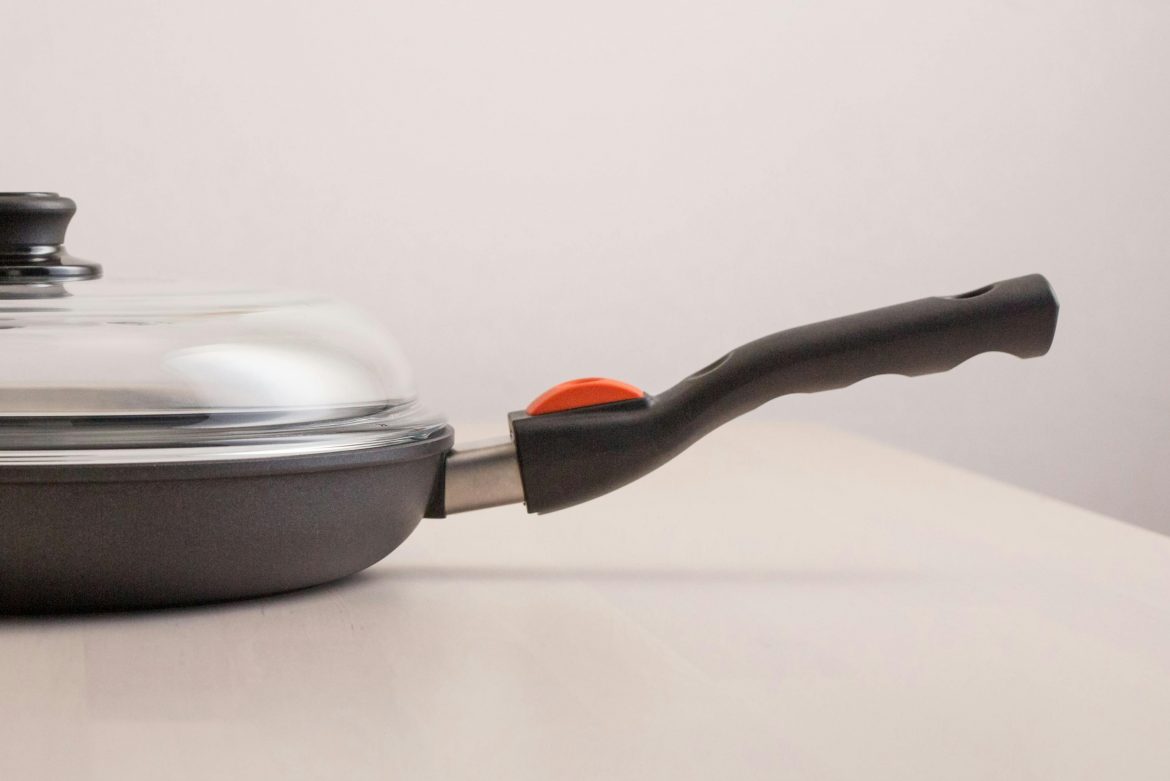Nonstick is a cookware staple in many homes, often added to the kitchen for its convenience and easy cleaning. Despite the no-fuss approach that nonstick requires, there are extra steps you can take to care for your nonstick pots and pans, in order to keep them in tip-top condition:
Use the right utensils
Use the right utensils to protect the coating. Opt for wooden, silicone, or plastic utensils when cooking with nonstick pans. Metal utensils can scratch the nonstick surface, compromising its effectiveness and potentially leading to flaking.
Cook on low to medium
Cook on low to medium heat to preserve the nonstick coating. High temperatures can damage the surface and release potentially harmful components. Preheat your pan on low heat, then cook on medium for best results. If you need high heat for searing, it’s better to use a different type of pan.
ALSO SEE: Hidden chemicals are harming your hormonal balance – how to take action
Let them cool
Allow your pans to cool before cleaning to prevent warping. Sudden temperature changes can cause the metal to warp, affecting the pan’s performance. Let your cookware cool naturally on the stovetop before washing.
Hand wash
Hand wash your nonstick cookware with care. Use a soft sponge or cloth with mild dish soap to clean your pans. Avoid abrasive scrubbers or harsh cleaning agents, as these can damage the nonstick coating. While some nonstick pans are labeled as dishwasher-safe, hand washing is generally gentler and can prolong the life of your cookware.
Avoid spray-on oils
Avoid using cooking sprays on your nonstick pans. These sprays can create a sticky residue that’s difficult to remove and may build up over time, reducing the pan’s nonstick properties. Instead, use a small amount of oil or butter if needed.
Store to prevent scratches
Store your nonstick cookware properly to prevent scratches. If stacking is necessary, place a soft cloth or paper towel between each piece to protect the surfaces. Alternatively, hang your pans if possible to avoid contact with other cookware.
Season with oil
Consider seasoning your nonstick pans occasionally. While not always necessary, especially for modern nonstick coatings, seasoning can help maintain the nonstick surface. After washing and drying, apply a thin layer of vegetable oil and heat the pan gently. This process can help extend the life of your cookware.
Know when to replace
Know when it’s time to replace your nonstick cookware. If you notice the nonstick coating is visibly damaged, peeling, or food starts sticking despite proper care, it’s time to invest in a new pan. Using damaged nonstick cookware can potentially release harmful substances into your food.
ALSO SEE:
Feature Image: Pexels / Sternsteiger Stalhwaren

